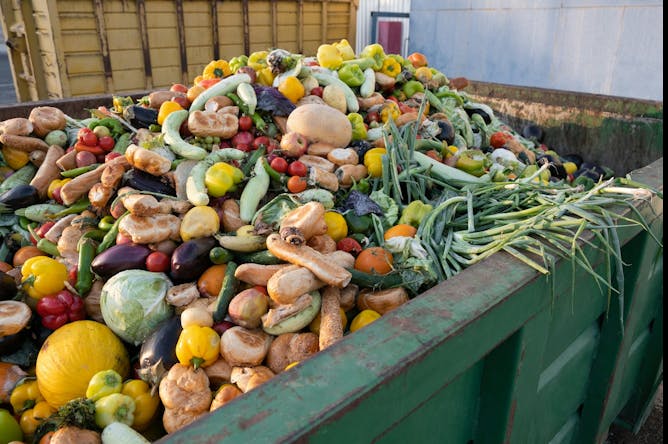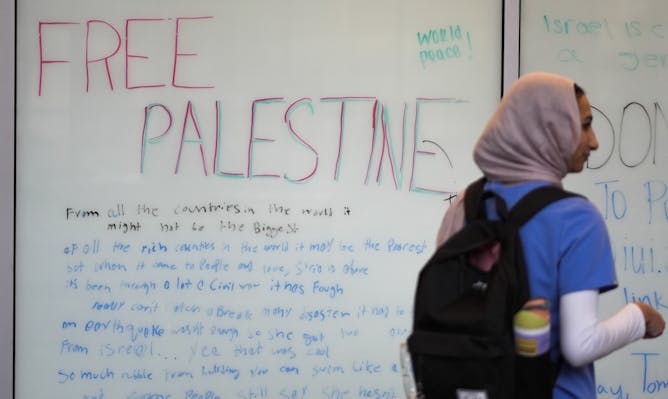|
The first Earth Day was held on April 22, 1970 and the conversation about protecting the environment has changed dramatically over the past 54 years.
Back then, the “environmental movement” was a fringe cause. Today, the fight against climate change is an international priority.
The Conversation‘s global network has published thousands of stories exploring how the climate crisis is affecting all aspects of our lives.
At The Conversation Canada over the past week, we’ve published stories about how the Canadian federal budget misses the mark on water investments; roadblocks to a "just transition" for oil and gas workers; the future of renewable energy in Alberta; and how climate education can help young people form environmentally friendly habits.
Today, Amar Laila and Jess Haines from the University of Guelph and Cristina Gago from Boston University offer four strategies to reduce household food waste.
“The average household is throwing away almost $900 each year and with nearly seven million Canadian households struggling to get enough food on the table — and two in five reporting cost as a barrier to healthy eating — that waste adds up,” they write.
Also today:
All the best,
|

Wasted fruits and vegetables are seen in a commercial garbage bin.
(Shutterstock)
Amar Laila, University of Guelph; Cristina Gago, Boston University; Jess Haines, University of Guelph
Food waste is a serious emergency in Canada and around the world. Here are four practical steps we can take this Earth Day to eat more healthily, reduce food waste and save the planet.
|

It’s important to understand both the possibilities and limitations of campus dialogue. A person walks past a board with the message ‘Free Palestine’ on the campus of Indiana University–Purdue University Indianapolis, Feb. 7, 2024, in Indianapolis.
(AP Photo/Darron Cummings)
Aftab Erfan, Simon Fraser University
In 2015, I saw Jewish and Muslim students forge a set of group agreements so they could dialogue on the Middle East conflict. Initiatives like this or a ‘Semester in Dialogue’ program are promising.
|

New Brunswick Premier Blaine Higgs delivers the State of the Province speech in Fredericton, N.B. in January 2024.
THE CANADIAN PRESS/Stephen MacGillivray
Kerri Anne Froc, University of New Brunswick
New Brunswick’s proposed Compassion Intervention Act could motivate the Supreme Court of Canada to impose restrictions on the notwithstanding clause.
|

Suicide is a public health issue, but it’s often discussed in whispers.
(Shutterstock)
Karin Neufeld, McMaster University; Sidney Robert Stacey, McMaster University
Our society needs to talk more openly about suicide. However, public discussion of suicide carries risks, and it’s crucial that such discussion be informed, sensitive and alert to potential harm.
|

Pour réduire la consommation d'alcool chez les jeunes, il vaut mieux compter sur les règles parentales, plutôt que sur des discussions quotidiennes.
(Shutterstock)
Catherine Cimon-Paquet, Université du Québec à Montréal (UQAM); Cécile Mathys, Université de Liège; Marie-Hélène Véronneau, Université du Québec à Montréal (UQAM)
Les parents d’adolescents jouent un rôle important dans leur consommation d’alcool. Une nouvelle étude montre que les règles parentales sont la clé… et que les discussions ne sont pas tant utiles !
|
Environment + Energy
|
-
John Cooley, University of Connecticut; Chris Simon, University of Connecticut
The last time that these two groups of cicadas emerged from underground together, Thomas Jefferson was president.
-
Jeremy Kiszka, Florida International University
The first dedicated scientific surveys have confirmed the presence of blue whales in Seychelles.
|
|
Politics
|
-
Tim Bakken, United States Military Academy West Point; Karrin Vasby Anderson, Colorado State University
The number of prospective jurors saying they can’t be fair to Trump because of who he is does not bode well for the defendant, a legal expert observes,
-
Stefan Wolff, University of Birmingham
President Xi is looking to play a wider international role, meetings with other national leaders suggest.
|
|